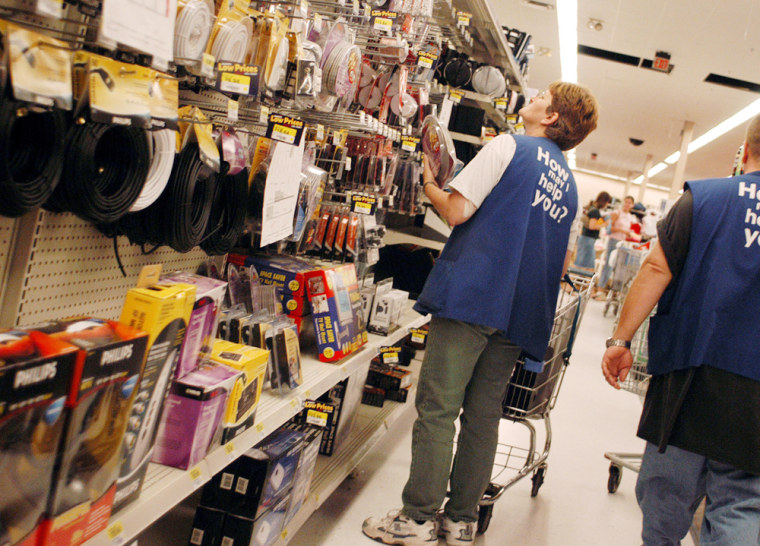New employees at Wal-Mart stores will have to undergo background criminal checks before being hired, according to a plan announced Thursday by the world’s largest retailer.
“We have hundreds of thousands of trustworthy women and men serving our customers,” said Sue Oliver, a senior vice president at Wal-Mart Stores Inc.’s stores division. “By adding another level of security to our hiring practices, our associates can be assured that we are strengthening our efforts to try to intercept anyone who might otherwise damage that integrity. We also believe this will add yet another level of comfort for our customers.”
The move follows a South Carolina legislator’s proposal last month that would require all large companies that sell to children to conduct background screenings. The bill was proposed after two Wal-Mart workers in the state were convicted of fondling children in the stores. The employees were both convicted sex offenders.
Wal-Mart, which employs 1.3 million people worldwide, said the program would start in Wal-Mart and Sam’s Club stores in the Midwest in September and expand nationally over the next several months. It will check each applicant’s history for various criminal offenses.
Wal-Mart said that anyone who lies on the application will not be hired.
The program follows a year of pilot programs nationwide. In a statement, Oliver said that setting up the checks was a relatively complex issue and that Wal-Mart has worked to create a process that abides by each community’s regulations and fairly screens all applicants.
“A process that meets the requirements in one geographical area may actually violate a rule in another,” Oliver said.
